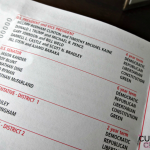
In February 2017, Facebook rolled out a new feature aptly called Facebook Jobs in North America (click HERE), where local businesses can post open jobs and passively look for suitable candidates who can then apply through Facebook. Businesses can use their company page to post job openings and communicate with applicants through Facebook Messenger.
LinkedIn Jobs (click HERE), which launched in January 2005, is a more mature, robust platform and does offer more options and features at this time. Right now, it is not an equal playing field comparison, as LinkedIn is currently a better option for most job profession and industries. However, it behooves LinkedIn to be aware of its drawbacks and the pros of Facebook Jobs to remain competitive, given Facebook’s much larger user base that can populate its job and candidate pools.
Facebook Jobs
https://www.facebook.com/jobs/
Facebook Jobs Pros & Cons
PROS
- Laser-like focus on local jobs. A job seeker can set from a 2-mile to 100-mile radius parameter for free. This is a powerful tool made very accessible to a large audience. LinkedIn only allows a few choices in multiples of 5 miles for the search.
- Multiple job type choices are given: Full-time, Part-time, Internship, Volunteer, and Contract.
- Many of the jobs listed across varied locations are entry-level and part-time roles in digital media, recruiting, personal care services, retail, and outdoor & recreation industries. Given the smaller pool of candidates on Facebook Jobs, job seekers applying to these openings will find themselves in a smaller pool of considered candidates.
- Facebook Jobs automatically populates an application with the Facebook profile information entered when the person’s profile is initially set up. This is a great convenience to not have to re-enter information for an application that is already listed on a profile. However, the job seeker will have to ensure their Facebook profile is populated in a professional manner to be used in job seeking efforts.
- Facebook Jobs permits a text section asking “Why do you think you’re a good candidate for <company name>?” The job seeker can demonstrate their knowledge of the company and help the hiring manager connect the dots between the company’s needs and the candidate’s experience.
CONS
- A location must be set for a search. An option does not exist to search for a position without a location. If a job seeker is doing a relocation or if a job seeker is open to location, a search will need to be done for the target role in every city targeted for the new job, setting the radius for the search for each city.
- There are much fewer jobs at the executive level listed compared to the executive job listing for LinkedIn Jobs, due to Facebook Jobs’ infancy compared to LinkedIn Jobs. However, it is something to be noted if you are looking for an executive role. Additionally, this con is still inadvertently a pro, since those early adopter executives that find a relevant executive job posting on Facebook Jobs will find themselves among fewer competitors since fewer candidates look at Facebook Jobs at this point compared to LinkedIn Jobs.
- At this time, there is not a source to search for related salaries for positions, as there is with LinkedIn Jobs.
- Many people use Facebook for personal use. If a job seeker chooses to use Facebook Jobs to look for positions, then the user’s profile needs to look professional to compete in this business context. A meld of personal and business personas is a con for many job seekers.
LinkedIn Jobs
https://www.linkedin.com/jobs/
LinkedIn Jobs Pros & Cons
PROS
- Suggested jobs are offered based on the content of your profile. You can set preferences for the types of jobs you want suggested to you based on location, experience level, experience type (profession), industry, and company size.
- Just below the job search fields, is access to LinkedIn Salary (http://linkedin.com/salary), where you can research salaries for the positions in the locations you are targeting alongside the job opening search. This is extremely helpful for job seekers to educate themselves on what the marketplace dictates for their skills and they put together their online application.
- With Premium Membership, a job seeker can see how they compare to other applicants in skill, current title, past experience, education and location matching, based on what is listed in the users profiles. (You can use The LinkedIn Profile Cheat Sheet to ensure your profile is optimized properly with the right key words in the right places (http://linkedinprofilecheatsheet.com)
- LinkedIn has the option to quickly apply using their InEasy Apply feature (if the employer uses this option, apply through the company’s website using your resume or LinkedIn profile or upload a resume to the LinkedIn Job posting.)
- A job seeker can create a Job Search Alert, where the job seeker is notified of newly posted roles that meet their search criteria.
CONS
- The competition is fierce on LinkedIn Jobs. While Facebook has many more monthly users than LinkedIn, LinkedIn Jobs has more activity than Facebook Jobs. This means a job seeker will face more competition on LinkedIn Jobs.
- A job seeker needs to whittle through sponsored job postings and have a solid command of Boolean search terms to find jobs that meet their keyword parameters. While it is great that LinkedIn Jobs has more jobs to choose from, there are also more jobs to sift through to get to the right positions for the applicant.
- If a job seeker is looking for entry-level or part-time work, LinkedIn is a bit lacking for opportunities meeting these criteria. LinkedIn tends to have more representation of openings in mid-to-senior level roles in the corporate areas.
So which is better to find your dream job? The answer is “it depends.” If a job seeker is looking for entry-level jobs in specific industries, Facebook Jobs could be a better option where to start a search. However, as an executive adopting Facebook Jobs as a job search tool in this early stage, an executive job seeker can find themselves in a much smaller pool of candidates for consideration. I believe a job seeker should not rule either option out entirely, but try each option often to determine which the best provider is for relevant opportunities.
Lisa Rangel is an Executive Resume Writer at Chameleonresumes.com, a Forbes Top 100 Career Website and recently named one of the top 28 resume writers in 2016 by Career Toolkit. She is also the LinkedIn Premium Career Group Moderator and has been featured in Inc., BBC, Investor’s Business Daily, Forbes.com, Fox News, Yahoo Finance, US News, and so many more reputable media outlets. Lisa also recently launched a new podcast “The Pretend You’re Fired Today Podcast – http://pretendyourefiredtoday.com. Download her LinkedIn Profile Cheat Sheet now at http://linkedinprofilecheatsheet.com









 #birthdaybehavior
#birthdaybehavior
















Leave a Reply